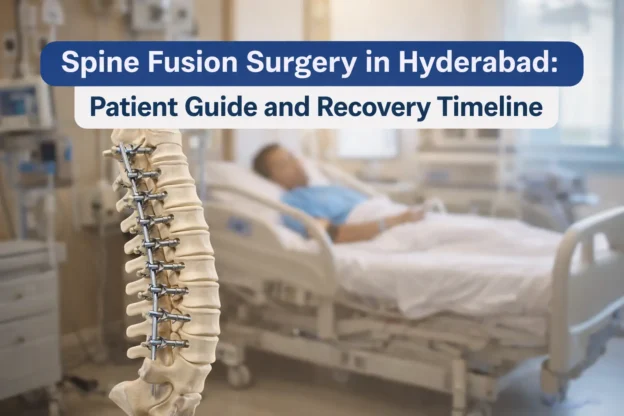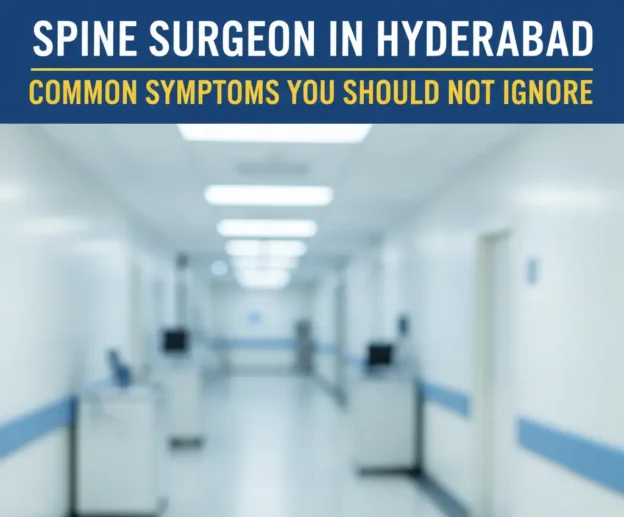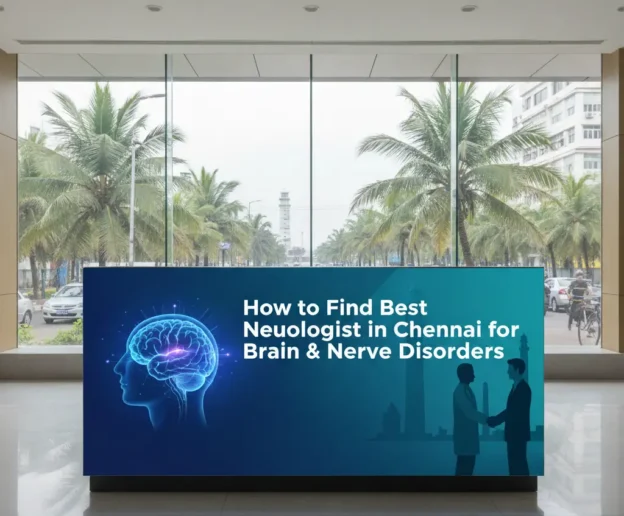Spine Fusion Surgery in Hyderabad: Patient Guide and Recovery Timeline
Spine fusion surgery is often recommended by a spine surgeon in Hyderabad when chronic back or neck pain begins to interfere with everyday life by a . If simple treatments like medication, physiotherapy, or lifestyle changes no longer work, spine fusion surgery may offer lasting relief. For many patients, understanding the procedure and recovery process helps reduce fear and builds confidence before treatment.
At Dr. Rao’s Hospital, patients receive expert guidance, advanced surgical care, and compassionate support throughout their spine treatment journey. This patient-friendly guide explains the procedure, recovery timeline, and what to expect from start to finish.
Understanding Spine Fusion Surgery in Hyderabad
A spine surgeon in Hyderabad performs spine fusion surgery to permanently join two or more vertebrae. This stops painful movement, stabilizes the spine, and helps reduce nerve irritation. The surgery is commonly advised for conditions like spinal instability, degenerative disc disease, fractures, or severe deformities.
At Dr. Rao’s Hospital, spine fusion procedures are planned carefully, keeping patient comfort, safety, and long-term mobility in mind.
When Is Spine Fusion Surgery Recommended?
A best spine surgeon in Hyderabad may recommend spine fusion surgery when long-standing back or neck pain continues for several months despite medication, physiotherapy, or lifestyle changes. This type of pain often limits daily activities and affects sleep and work performance.
Spine fusion surgery is also advised when nerve compression causes weakness, numbness, or tingling in the arms or legs, indicating pressure on spinal nerves. In cases where spinal instability impacts posture or movement, fusion helps restore balance and prevent further damage.
Additionally, disc degeneration, fractures, or spinal conditions that worsen over time may require surgical stabilization to protect nerve function and improve quality of life.
At Dr. Rao’s Hospital, specialists always explore non-surgical treatments first. Spine fusion surgery is recommended only when it offers the safest and most effective path to long-term pain relief and spinal stability.
Spine Fusion Surgery Procedure Explained
Pre-Surgery Evaluation
Before spinal fusion surgery Hyderabad, patients undergo detailed imaging tests like X-rays, MRI, or CT scans. These help the spine surgeon in Hyderabad identify the exact problem area.
At Dr. Rao’s Hospital, patients also receive clear explanations, allowing them to feel informed and prepared.
During the Surgery
The spine fusion surgery procedure Hyderabad involves removing damaged disc material and placing bone grafts, rods, or screws to fuse the vertebrae together. Over time, the bones heal into a single solid structure.
Modern techniques used at Dr. Rao’s Hospital often reduce tissue damage and improve surgical precision.
Post-Surgery Monitoring
After surgery, patients are closely monitored for pain control, mobility, and healing. The care team ensures comfort and early movement where appropriate and it also helps to reduce spine fusion surgery recovery time Hyderabad.
Patient Guide for Spine Fusion Surgery Hyderabad
Preparing for Surgery
A complete patient guide for spine fusion surgery Hyderabad includes physical preparation and mental readiness. Patients are advised to:
- Stop smoking for better healing
- Maintain a healthy diet
- Follow medication instructions
- Arrange post-surgery support at home
At Dr. Rao’s Hospital, personalized pre-surgery counseling helps patients feel confident and stress-free.
Hospital Stay and Early Recovery
Most patients stays in the hospital for a few days after surgery. During this time, pain is managed, and gentle movement begins under supervision. A spine surgeon in Hyderabad ensures that recovery starts safely and gradually.
Spine Fusion Surgery Recovery Time Hyderabad
First Few Weeks
The spine fusion surgery recovery time Hyderabad usually begins with rest and limited movement. Patients may need braces or supports depending on the surgery type. At Dr. Rao’s Hospital, physiotherapists guide patients through gentle exercises to restore strength and flexibility.
1 to 3 Months Post-Surgery
During this phase, mobility improves steadily. Pain reduces, and patients gradually resume daily activities. Heavy lifting and bending are still restricted. The best spine surgeon in Hyderabad monitors healing progress closely to avoid complications.
Long-Term Recovery
Complete fusion can take several months. With proper care, many patients experience significant pain relief and improved quality of life. At Dr. Rao’s Hospital, long-term follow-ups ensure lasting results and spine stability.
Benefits of Spine Fusion Surgery
Spine fusion surgery in Hyderabad offers several benefits, including:
- Reduced chronic pain: By eliminating painful movement between damaged vertebrae, spine fusion surgery significantly reduces ongoing back or neck pain that interferes with daily life.
- Improved spinal stability: Fusion strengthens weak or unstable segments of the spine, helping prevent further degeneration, deformity, or injury over time.
- Better posture and movement: Stabilizing the spine improves alignment, allowing patients to stand, sit, and move more comfortably with improved balance and confidence.
- Relief from nerve compression: By relieving pressure on compressed nerves, spine fusion surgery helps reduce symptoms like numbness, tingling, and muscle weakness in the arms or legs.
When performed by an experienced spine surgeon in Hyderabad, outcomes are often highly successful.
Why Choose Dr. Rao’s Hospital for Spine Fusion Surgery?
Selecting the best spine surgeon in Hyderabad is crucial for successful results. Dr. Rao’s Hospital stands out due to:
- Advanced surgical technology
- Experienced spine specialists
- Personalized treatment plans
- Strong focus on patient recovery
Patients trust Dr. Rao’s Hospital for its commitment to safety, transparency, and long-term spine health.
Life After Spine Fusion Surgery
Although spinal flexibility may reduce slightly, most patients enjoy a pain-free, active lifestyle after recovery. Following medical advice, maintaining proper posture, and staying active play key roles in long-term success. At Dr. Rao’s Hospital, patients receive guidance on lifestyle changes that protect spine health well beyond surgery.
Advanced Spine Surgery Care Across Multiple Locations
While spine fusion surgery in Hyderabad remains a key focus, Dr. Rao’s Hospital extends expert spine care across multiple cities, allowing patients to access specialized treatment closer to home while maintaining consistent medical standards.
Patients seeking Spine Surgery in guntur can consult experienced spine specialists for accurate diagnosis and personalized treatment plans. Similarly, those looking for advanced care through Spine Surgery in hyderabad benefit from modern surgical techniques and comprehensive post-operative support.
Dr. Rao’s Hospital also offers trusted services for Spine Surgery in narasaraopet, Spine Surgery in nellore, and Spine Surgery in ongole, ensuring patients in nearby regions receive high-quality spine care without unnecessary travel.
Additionally, patients from surrounding districts can access expert treatment for Spine Surgery in rajahmundry and Spine Surgery in vijayawada. Coastal Andhra patients can also benefit from specialized care through Spine Surgery in Visakhapatnam.
Through this connected network, Dr. Rao’s Hospital ensures seamless consultation, treatment, and follow-up care, supporting patients at every stage of their spine health journey.
Frequently Asked Questions
1. What is the cost of spine surgery in Hyderabad?
The cost of spine surgery in Hyderabad varies based on condition severity, hospital facilities, and surgeon expertise. Consulting a best spine surgeon in Hyderabad ensures accurate cost estimates and appropriate treatment planning.
2. Which doctor is best for spine?
The best spine surgeon in Hyderabad is one with extensive experience in spine disorders, advanced surgical skills, and strong patient outcomes, such as specialists at Dr. Rao’s Hospital.
3. How much does a spine fusion surgery cost?
The spinal fusion surgery Hyderabad cost depends on the surgical technique, number of vertebrae involved, and hospital stay. A spine surgeon in Hyderabad provides personalized cost guidance after evaluation.
4. How risky is spinal fusion surgery?
Spinal fusion surgery is generally safe when performed by an experienced spine surgeon in Hyderabad. Modern techniques and proper post-operative care significantly reduce risks and complications.
5. What is the best age for spinal fusion?
There is no fixed age. Spine fusion surgery in Hyderabad is recommended based on spine condition, pain severity, and overall health rather than age alone.
6. How long does it take to fully recover from spinal fusion surgery?
The spine fusion surgery recovery time Hyderabad usually spans several months. Most patients resume normal activities gradually with physiotherapy and follow-ups from the best spine surgeon in Hyderabad.
7. How many hours does spinal fusion surgery take?
The spine fusion surgery procedure Hyderabad typically takes 2 to 4 hours, depending on the complexity of the spine condition and number of spinal levels involved.
8. What are the permanent restrictions after spinal fusion?
After spinal fusion surgery Hyderabad, patients may need to avoid heavy lifting, extreme bending, or high-impact activities to protect spinal stability long term.
9. How to care for someone after spinal fusion surgery?
Post-surgery care includes medication support, physiotherapy, mobility assistance, and follow-up visits with a spine surgeon in Hyderabad to ensure safe recovery.
10. How soon can I walk after spinal fusion surgery?
Most patients can walk within 24–48 hours after spine fusion surgery in Hyderabad, under medical supervision, promoting circulation and faster healing.










